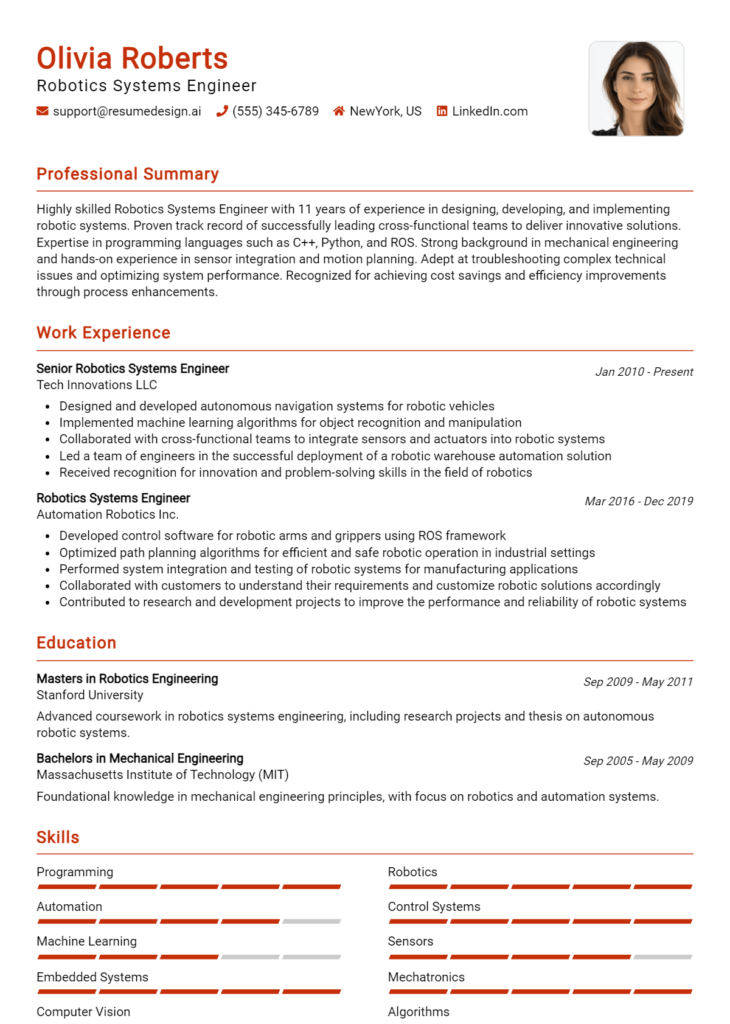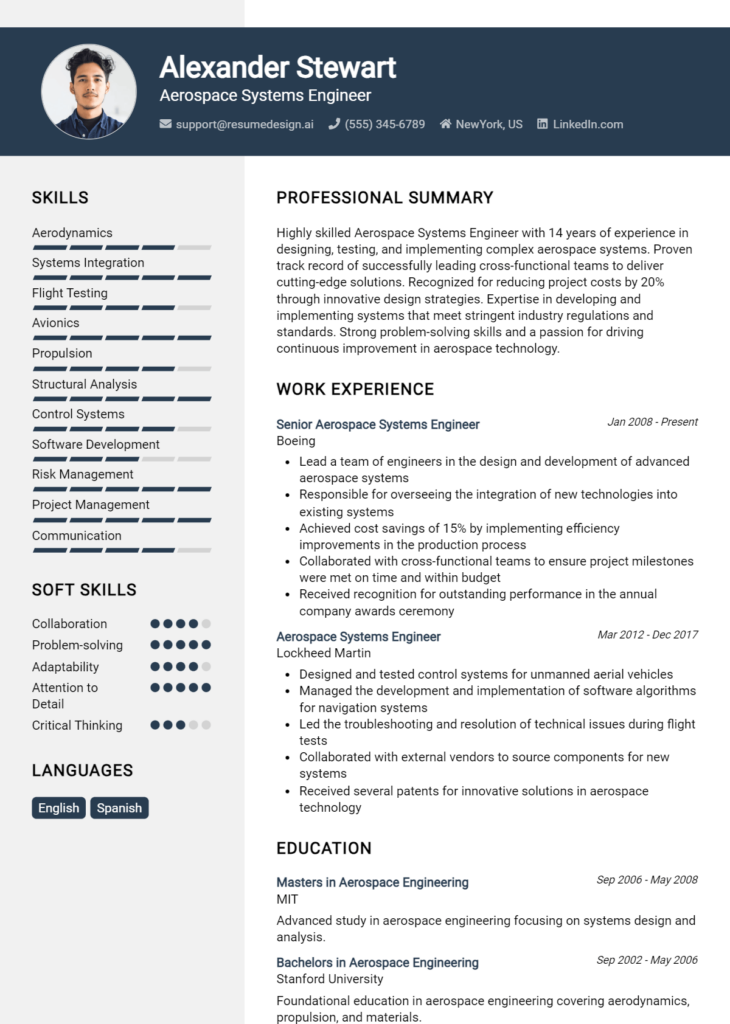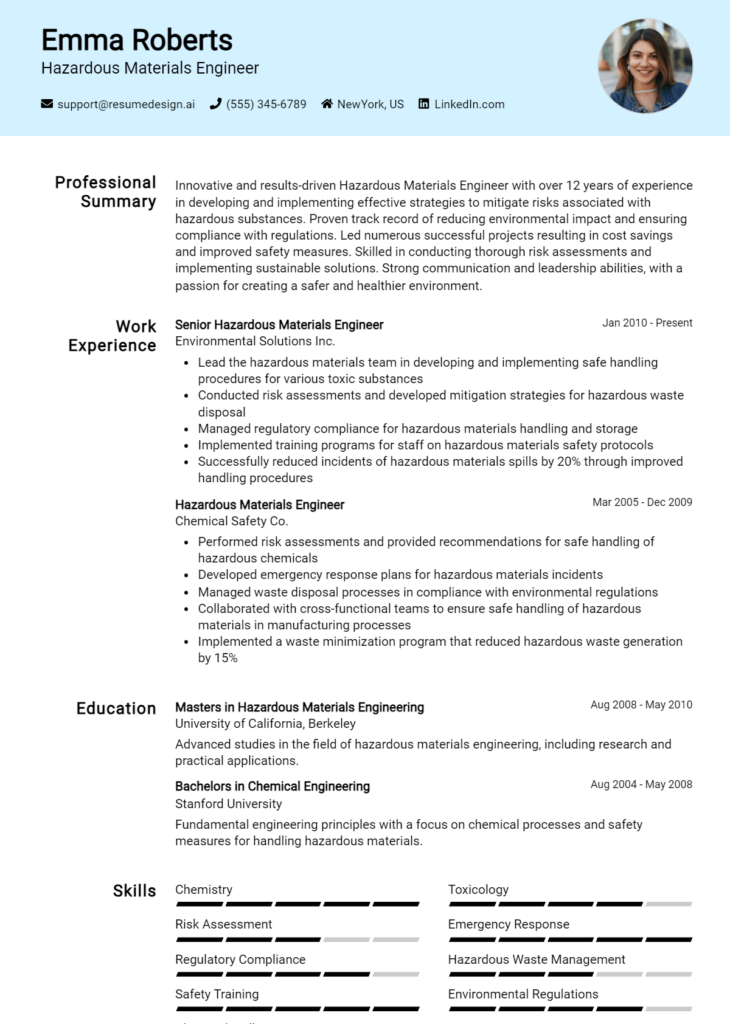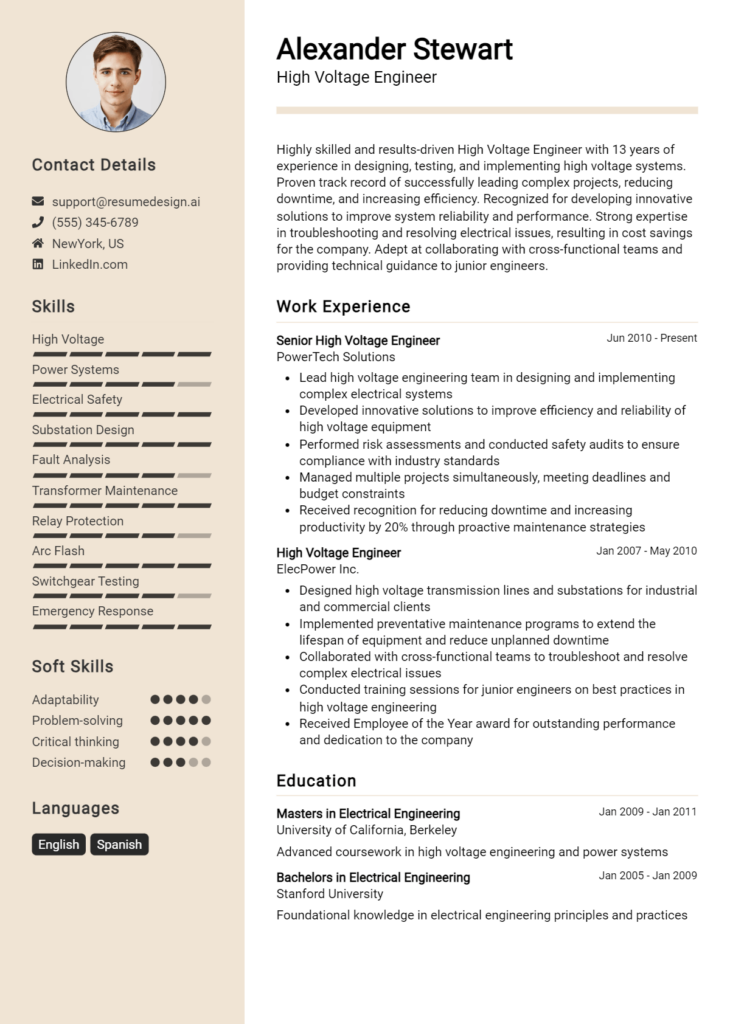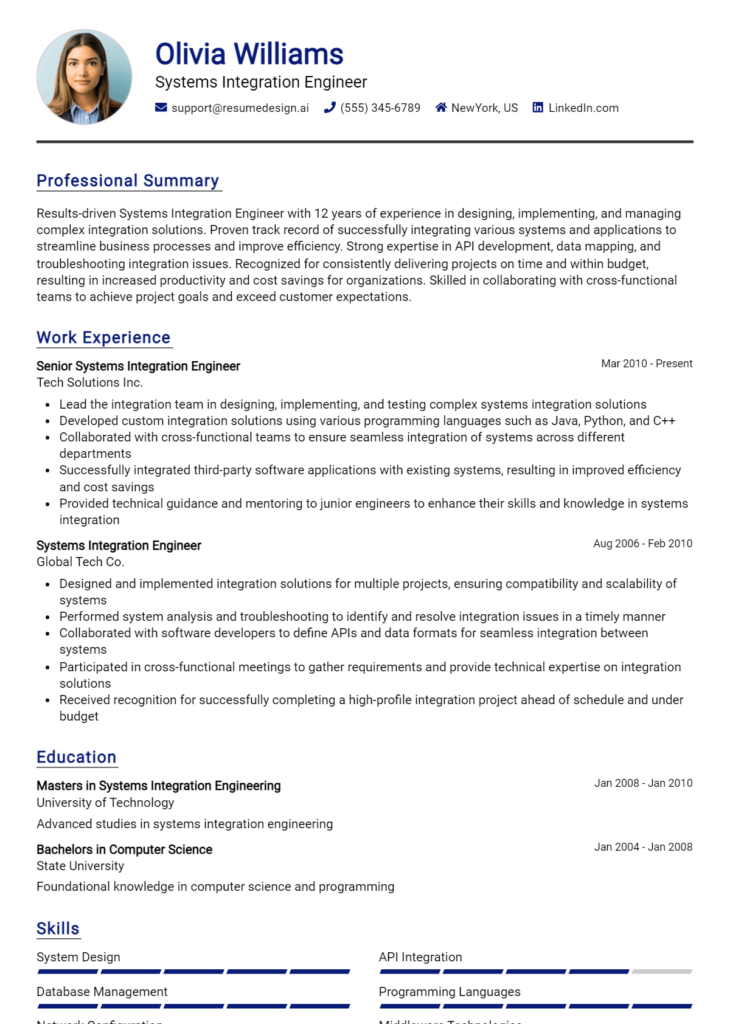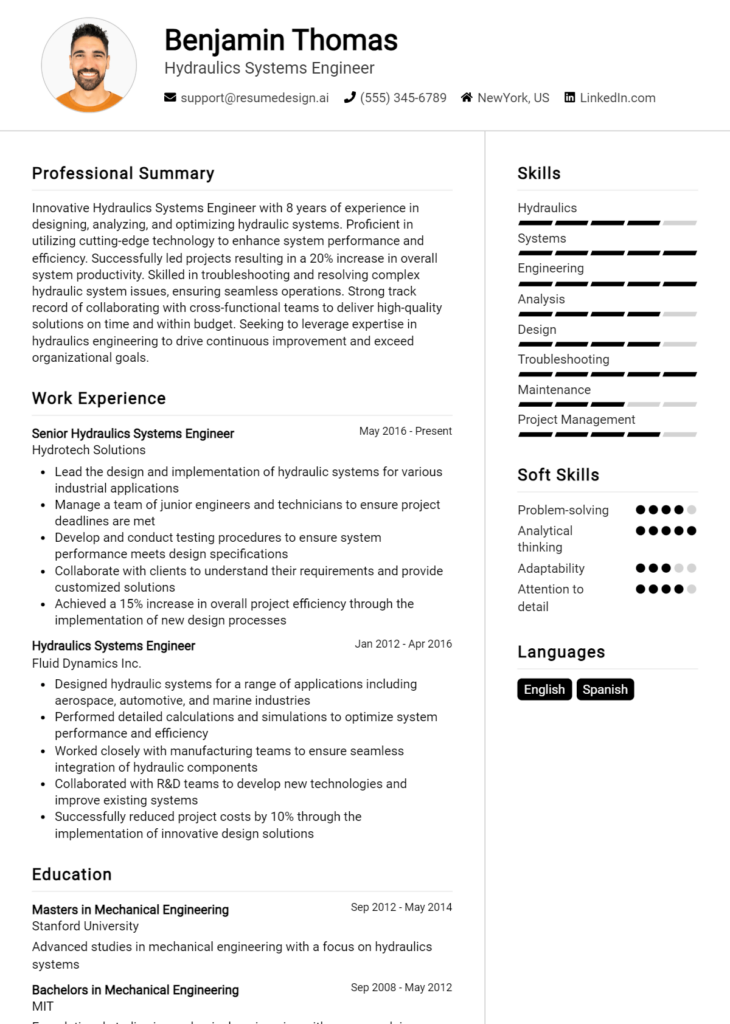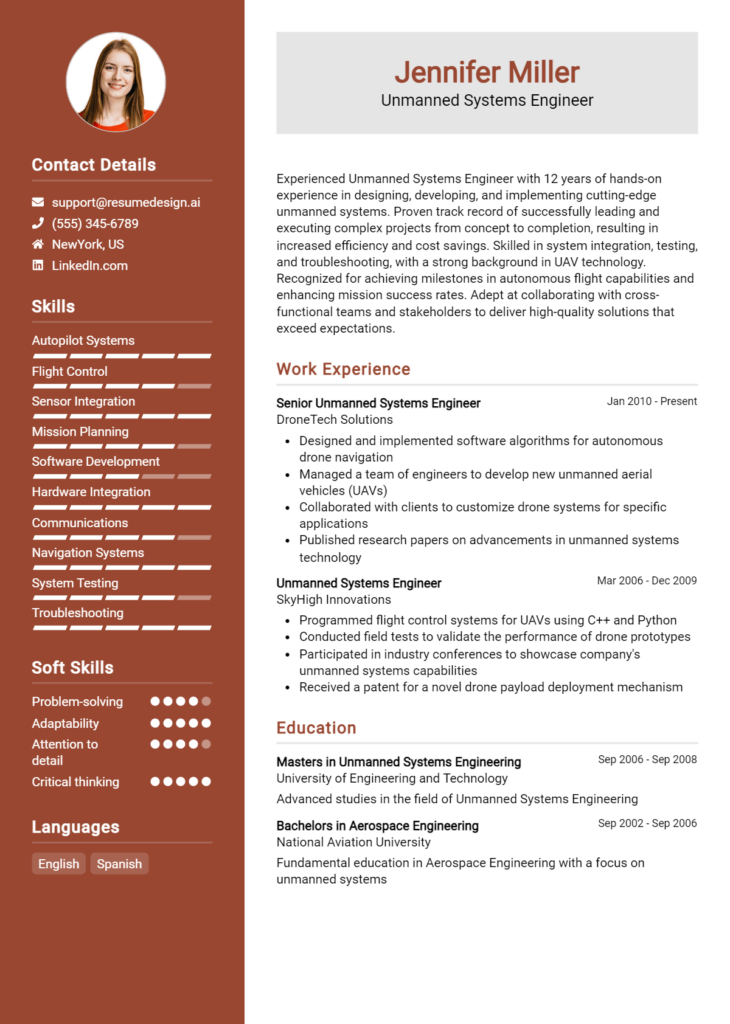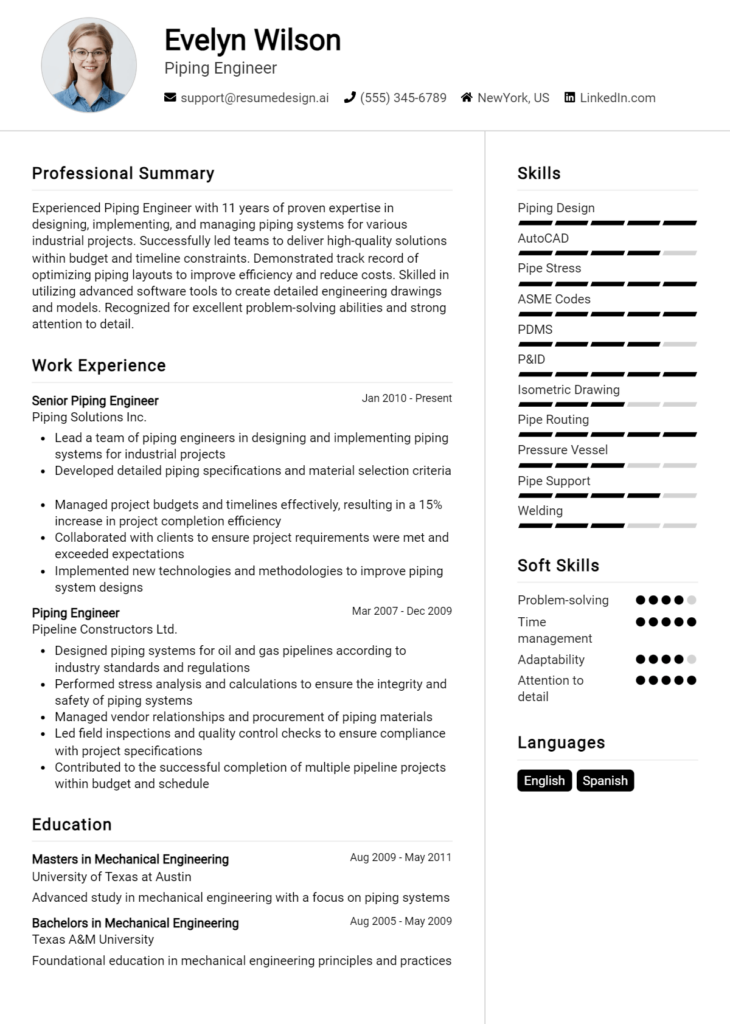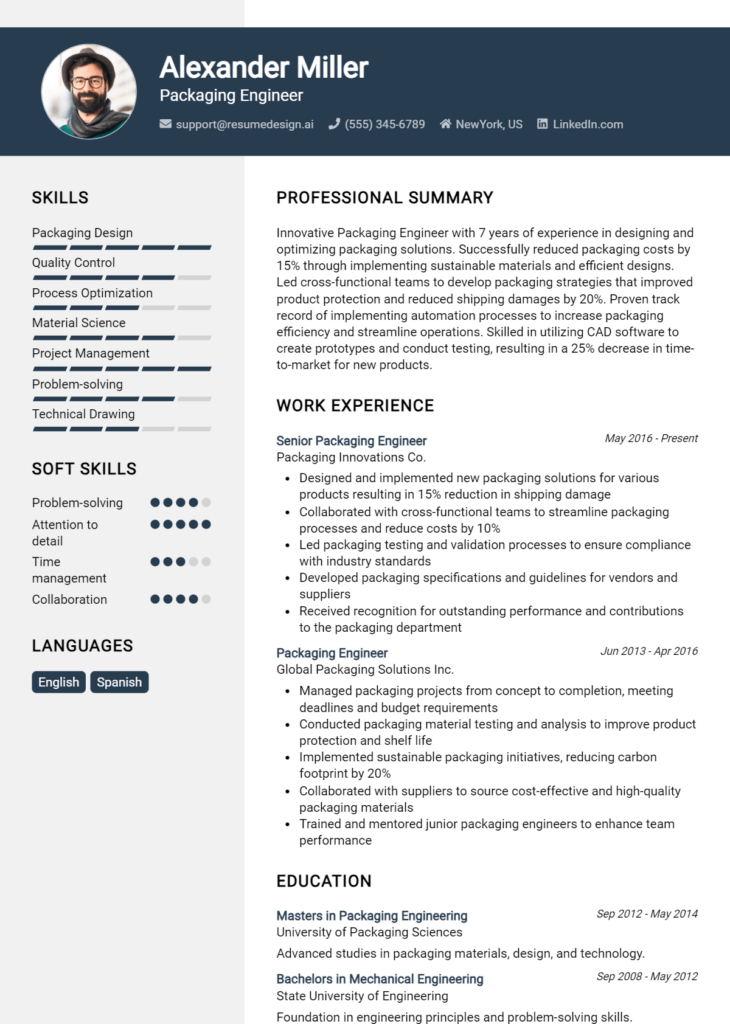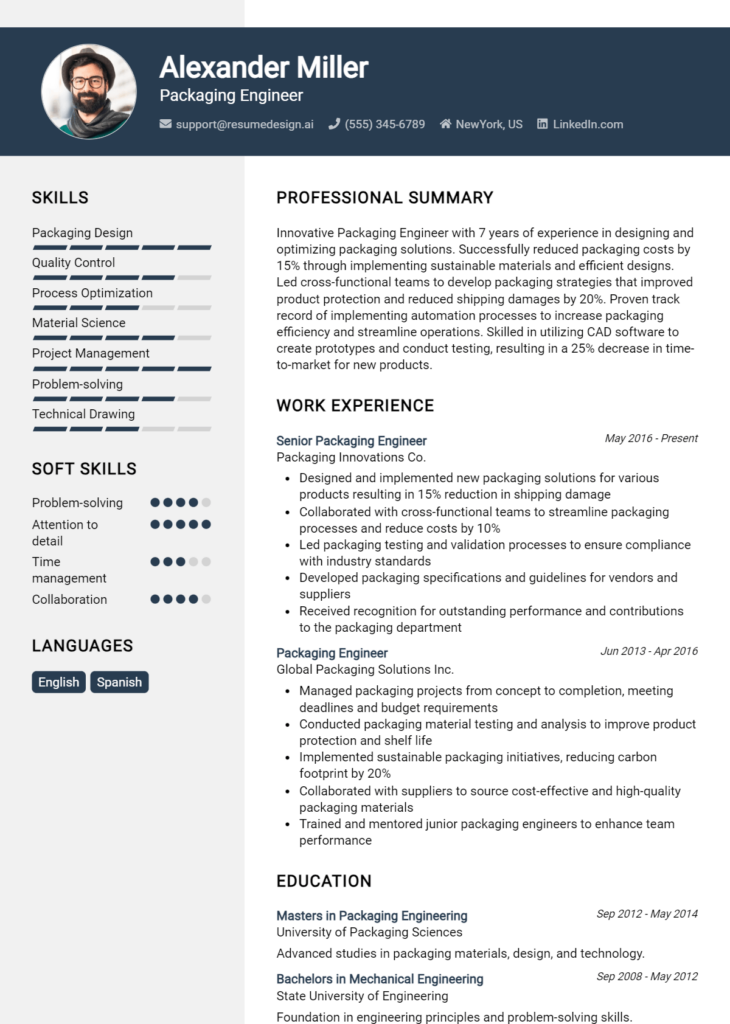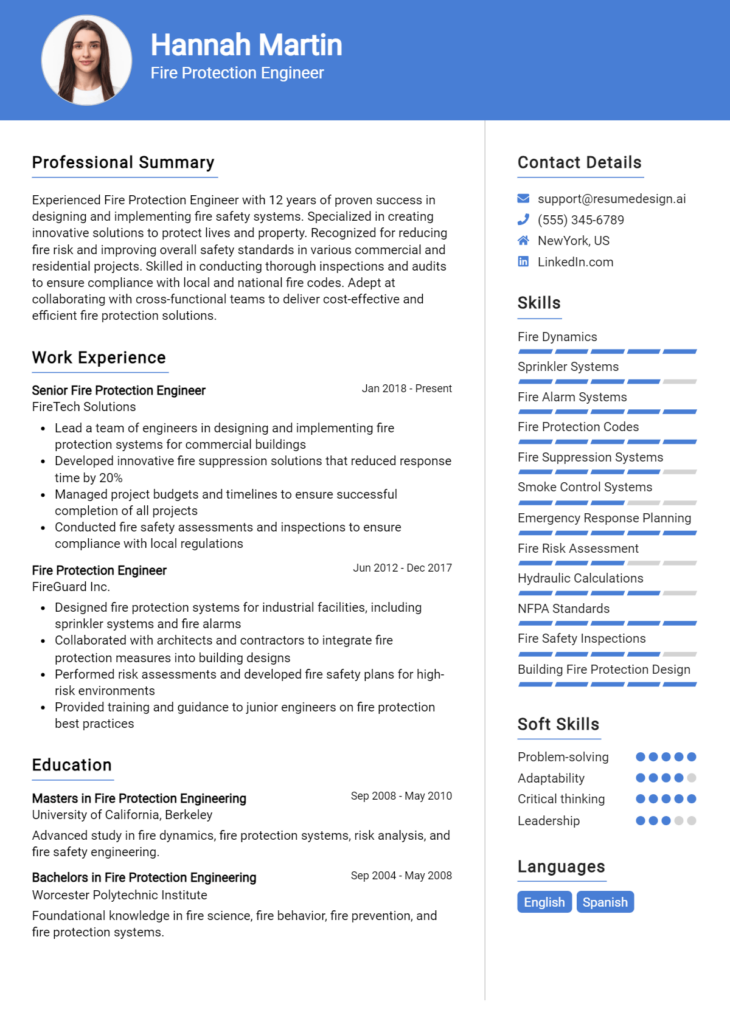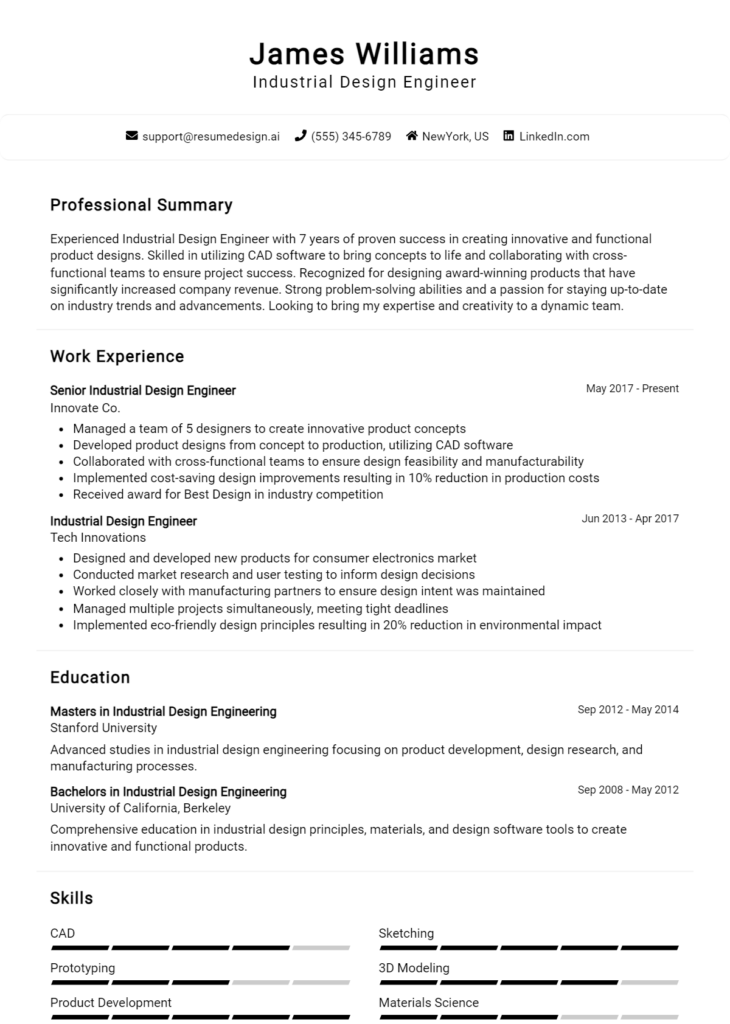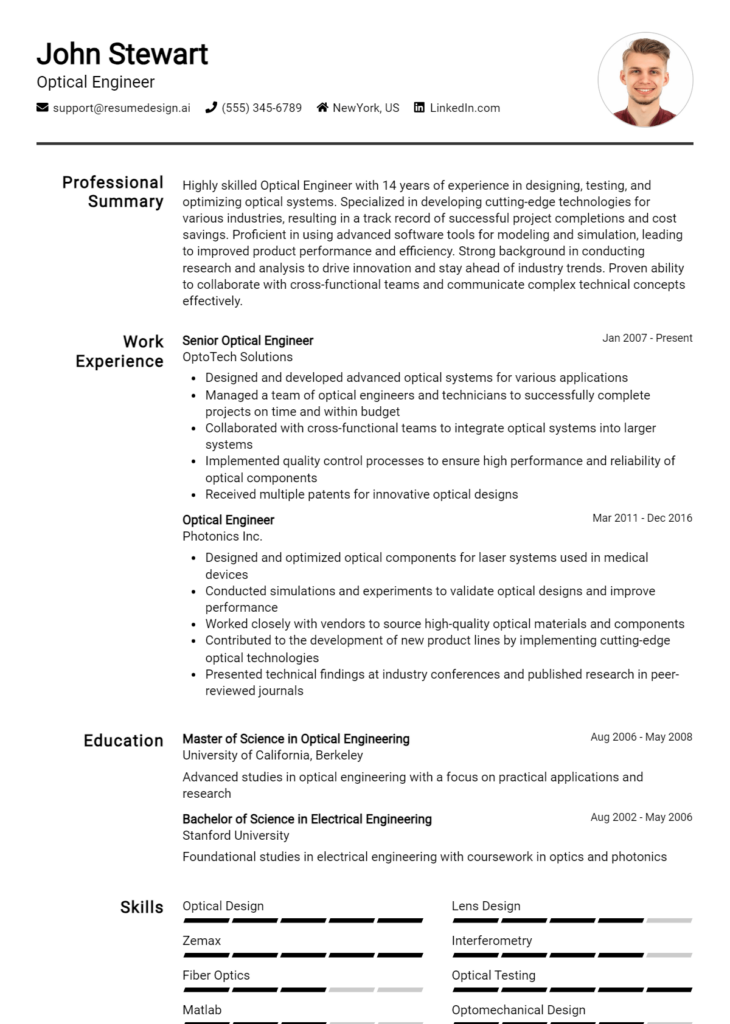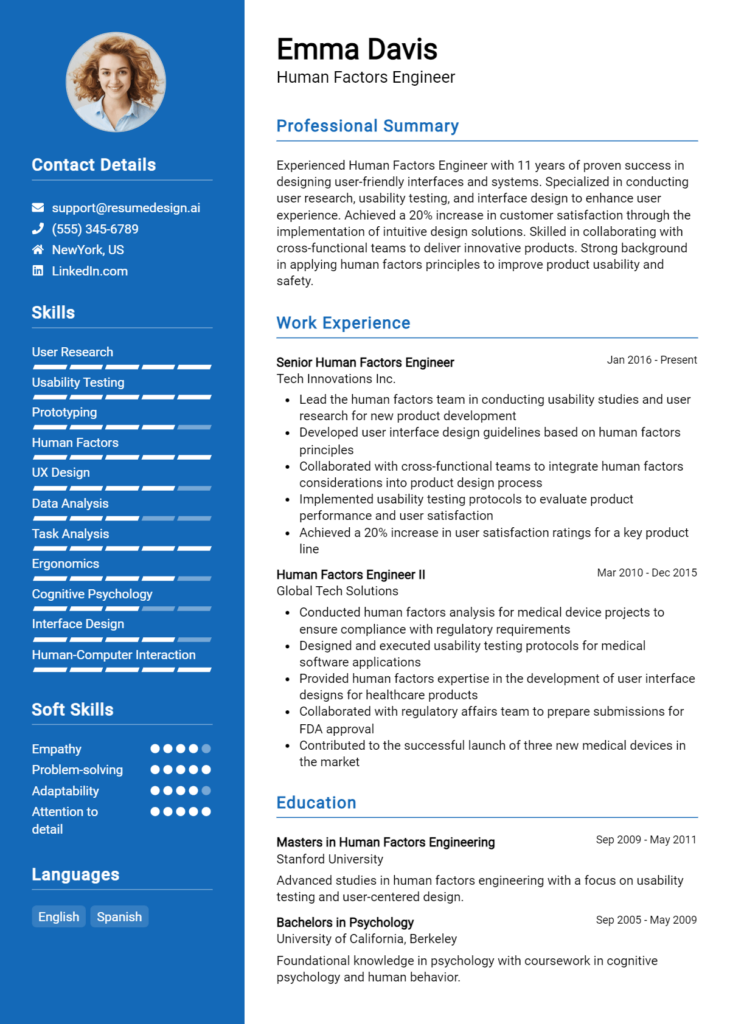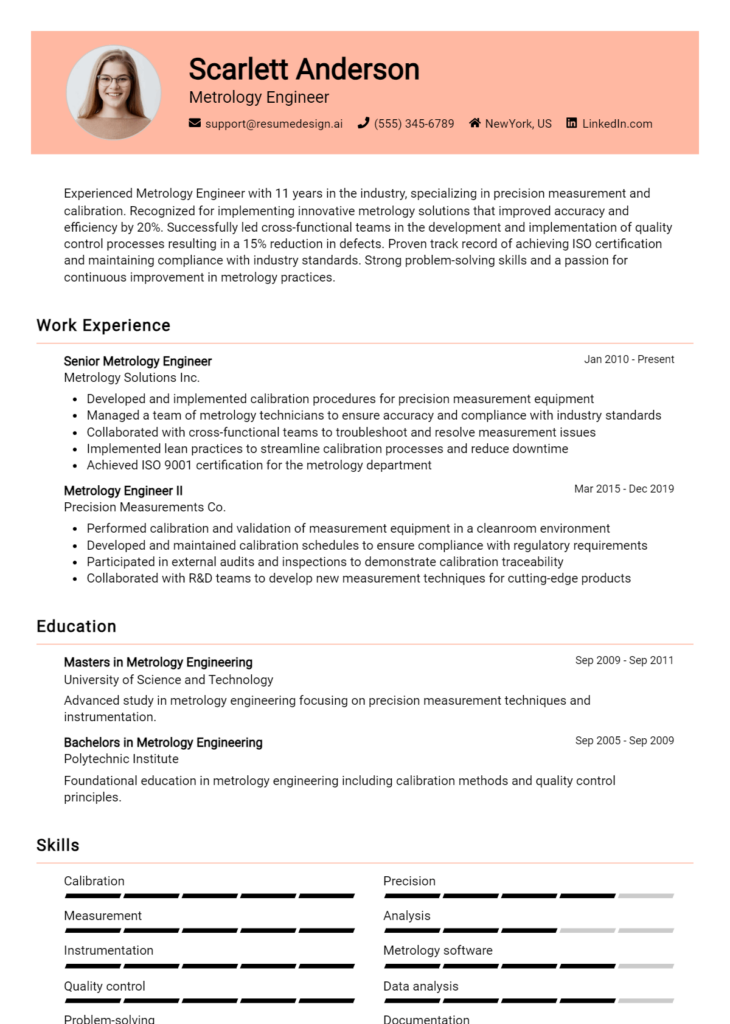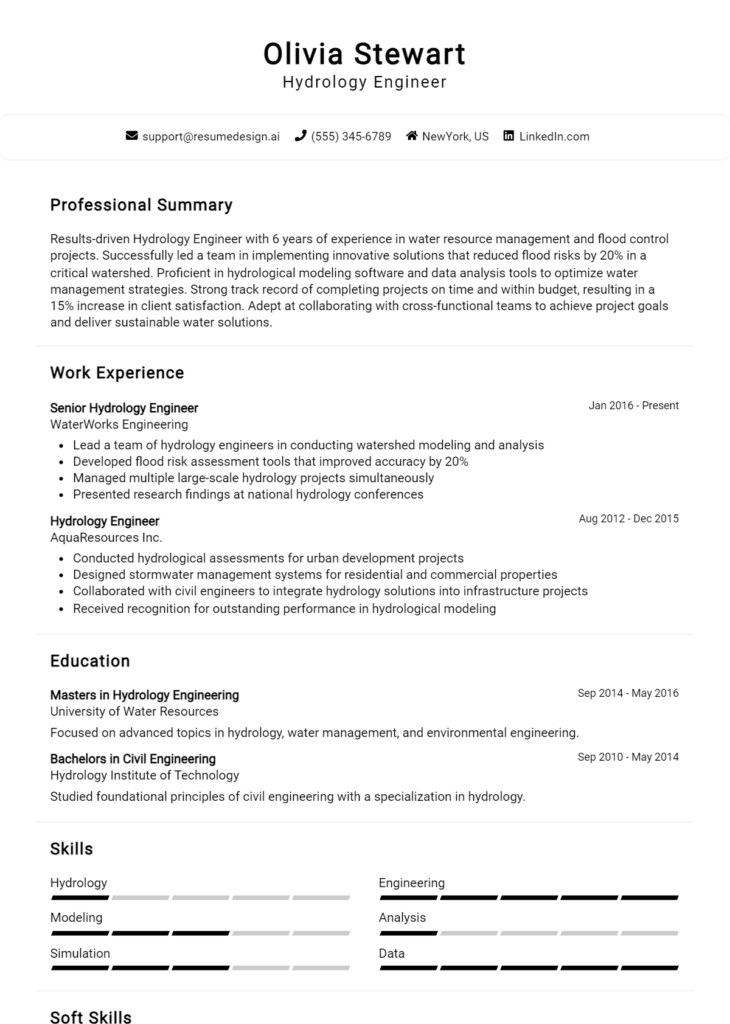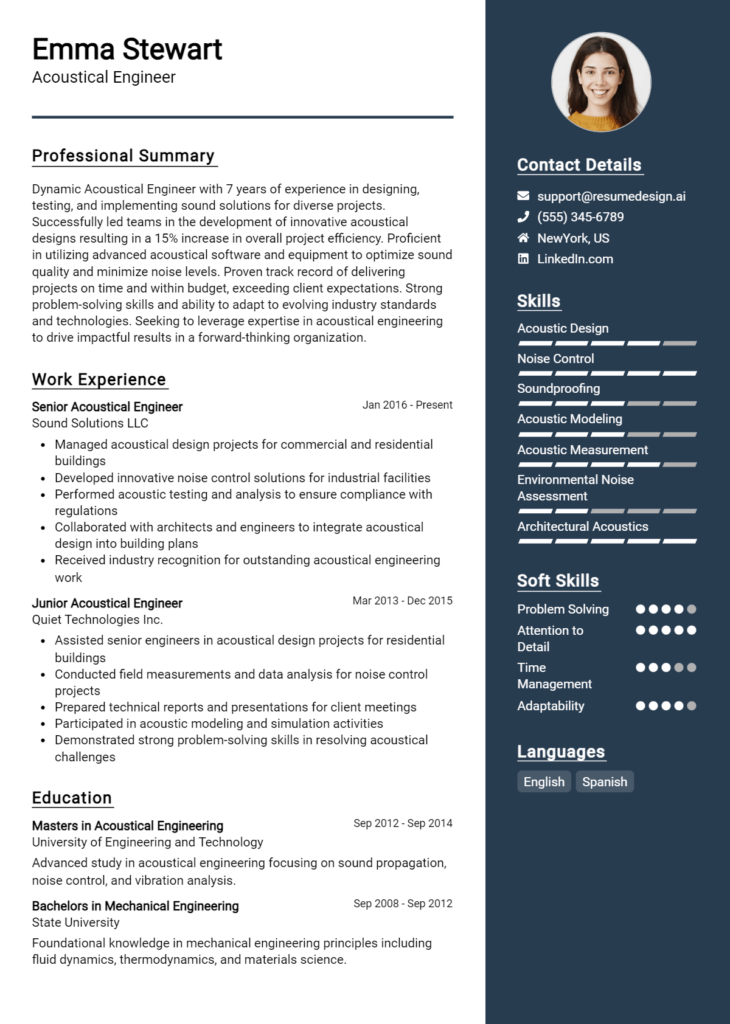Forensic Engineer Core Responsibilities
A Forensic Engineer plays a pivotal role in investigating structural failures and accidents by applying engineering principles to analyze evidence and determine causes. This position requires strong technical, operational, and problem-solving skills to bridge the gap between engineering, legal, and insurance sectors. Effective communication and analytical abilities are essential for presenting findings clearly. A well-structured resume highlighting these qualifications can significantly enhance career opportunities and contribute to the organization's goals by ensuring safety and compliance.
Common Responsibilities Listed on Forensic Engineer Resume
- Conduct thorough investigations of structural failures and accidents.
- Analyze data and evidence to determine causes and liability.
- Prepare detailed technical reports and presentations for stakeholders.
- Collaborate with legal professionals to provide expert testimony.
- Utilize advanced engineering software for simulations and modeling.
- Inspect and assess the integrity of materials and structures.
- Develop and implement testing protocols for forensic analysis.
- Stay updated on industry standards and regulations.
- Provide recommendations for risk mitigation and safety improvements.
- Work cross-functionally with project managers and other engineers.
- Train and mentor junior engineers in forensic methodologies.
High-Level Resume Tips for Forensic Engineer Professionals
In the competitive field of forensic engineering, a well-crafted resume is crucial for making a strong first impression on potential employers. As the initial point of contact, your resume should not only showcase your technical expertise but also reflect your achievements and professional growth. It serves as a marketing tool that highlights your ability to solve complex problems, communicate effectively, and contribute to the safety and integrity of structures and systems. This guide will provide practical and actionable resume tips specifically tailored for forensic engineer professionals, ensuring your application stands out in a crowded job market.
Top Resume Tips for Forensic Engineer Professionals
- Tailor your resume to match the job description, emphasizing relevant skills and experiences that align with the position.
- Highlight your educational background, specifically any degrees or certifications relevant to forensic engineering.
- Showcase your relevant experience by detailing specific projects you’ve worked on, including your role and contributions.
- Quantify your achievements with metrics, such as the number of investigations completed or the amount of money saved through your recommendations.
- Include industry-specific skills, such as knowledge of building codes, materials science, and investigative techniques.
- Utilize action verbs to describe your responsibilities and accomplishments, making your resume more dynamic and engaging.
- Incorporate any professional memberships or affiliations with engineering societies, emphasizing your commitment to the field.
- Keep your resume organized and professional, using clear headings and bullet points for easy readability.
- Consider adding a summary statement at the beginning that encapsulates your expertise and career goals in forensic engineering.
By implementing these tips, you can significantly increase your chances of landing a job in the forensic engineering field. A polished and targeted resume not only highlights your qualifications but also demonstrates your dedication to the profession, making you a more attractive candidate to potential employers.
Why Resume Headlines & Titles are Important for Forensic Engineer
In the competitive field of forensic engineering, having a standout resume is crucial for catching the eye of hiring managers. A well-crafted resume headline or title serves as the first impression and can significantly influence the hiring decision. It encapsulates a candidate's key qualifications in a concise and compelling manner, allowing potential employers to quickly assess relevance and expertise. A strong headline not only grabs attention but also sets the tone for the rest of the resume, making it essential that it is relevant to the job being applied for and effectively highlights the candidate's unique strengths.
Best Practices for Crafting Resume Headlines for Forensic Engineer
- Be concise: Aim for a headline that is brief yet informative, ideally under 10 words.
- Be role-specific: Tailor the headline to the specific forensic engineering position you are applying for.
- Highlight key strengths: Focus on your most relevant skills, experiences, or certifications.
- Use action-oriented language: Employ strong verbs that convey your accomplishments and impact.
- Incorporate industry keywords: Utilize terminology that is commonly recognized in the forensic engineering field.
- Avoid jargon: Ensure the headline is easily understandable by all readers, including those outside your specific field.
- Align with job description: Reflect the requirements and desired qualifications listed in the job posting.
- Make it memorable: Use a unique phrasing that makes you stand out while remaining professional.
Example Resume Headlines for Forensic Engineer
Strong Resume Headlines
Expert Forensic Engineer Specializing in Structural Failures and Accident Reconstruction
Certified Forensic Engineer with 10+ Years of Experience in Civil Investigations
Innovative Forensic Engineer Committed to Delivering Accurate Evidence Analysis
Weak Resume Headlines
Engineer Looking for a Job
Forensic Engineering Professional
The strong headlines are effective because they immediately convey specific qualifications and areas of expertise relevant to forensic engineering, capturing the attention of hiring managers seeking candidates who can meet their precise needs. In contrast, the weak headlines fail to make an impact due to their vagueness and lack of specificity, leaving hiring managers with no clear understanding of the candidate's qualifications or unique strengths.
Writing an Exceptional Forensic Engineer Resume Summary
A resume summary is a crucial component for a Forensic Engineer, as it serves as the first impression a candidate makes on hiring managers. A strong summary quickly captures attention by highlighting key skills, relevant experiences, and notable accomplishments that align with the job role. It should be concise and impactful, effectively conveying the candidate's qualifications while being tailored to the specific requirements of the position they are applying for. An exceptional summary not only sets the tone for the rest of the resume but also increases the likelihood of securing an interview.
Best Practices for Writing a Forensic Engineer Resume Summary
- Quantify Achievements: Use numbers and metrics to demonstrate your impact and success in previous roles.
- Focus on Relevant Skills: Highlight technical skills and industry knowledge specific to forensic engineering.
- Customize for Each Job Application: Tailor your summary to reflect the requirements and language of the job description.
- Keep it Concise: Aim for 3-5 sentences that effectively summarize your qualifications without overwhelming the reader.
- Showcase Problem-Solving Abilities: Emphasize your capacity to analyze complex situations and provide effective solutions.
- Highlight Certifications and Education: Mention any relevant certifications or degrees that enhance your credibility in the field.
- Use Action-Oriented Language: Begin sentences with strong action verbs to convey confidence and proactivity.
- Reflect Professionalism: Maintain a formal tone that reflects the seriousness of the forensic engineering profession.
Example Forensic Engineer Resume Summaries
Strong Resume Summaries
Detail-oriented Forensic Engineer with over 8 years of experience in accident reconstruction and failure analysis. Successfully led investigations resulting in a 30% reduction in litigation costs through expert testimony and detailed reporting.
Certified Forensic Engineer with a proven track record of utilizing advanced analytical techniques to assess structural failures. Instrumental in over 50 investigations, contributing to a 40% increase in case resolution efficiency for law firms.
Results-driven professional with dual expertise in civil engineering and forensic analysis. Recognized for developing innovative solutions that improved project timelines by 25%, while maintaining compliance with safety regulations.
Weak Resume Summaries
Experienced engineer looking for a job in forensic engineering. I have worked on various projects and am good at solving problems.
Forensic Engineer with some background in investigations. I want to help companies by analyzing incidents.
The strong summaries are considered effective because they provide specific examples of achievements, quantify results, and highlight relevant skills that are tailored to the forensic engineering role. In contrast, the weak summaries lack detail and specificity, making them generic and less impactful, ultimately failing to engage hiring managers.
Work Experience Section for Forensic Engineer Resume
The work experience section of a Forensic Engineer's resume is a critical component that demonstrates the candidate's technical skills, leadership capabilities, and commitment to delivering high-quality results in complex situations. This section is where applicants can showcase their hands-on experience in forensic investigations, their ability to manage multidisciplinary teams, and their success in producing reliable and accurate assessments. By quantifying achievements and aligning past roles with industry standards, candidates can effectively illustrate their value to potential employers, making this section essential for standing out in a competitive field.
Best Practices for Forensic Engineer Work Experience
- Highlight specific technical skills relevant to forensic engineering, such as structural analysis or materials testing.
- Quantify achievements using metrics to demonstrate the impact of your work, such as cost savings or time efficiencies.
- Showcase leadership experience by detailing your role in managing teams or projects.
- Include examples of collaboration with other professionals, such as law enforcement or legal teams, to highlight teamwork.
- Use action verbs to convey proactive involvement and initiative in your projects.
- Align your experiences with industry standards and best practices to demonstrate your knowledge of current trends.
- Focus on relevant case studies or projects that illustrate your problem-solving skills in forensic contexts.
- Tailor your work experiences to the specific job description and requirements of the position you're applying for.
Example Work Experiences for Forensic Engineer
Strong Experiences
- Led a team of forensic engineers in the investigation of a structural failure, resulting in a 30% reduction in litigation costs for clients through early resolution.
- Conducted over 50 forensic analyses on various engineering failures, achieving a 95% success rate in determining root causes.
- Developed a comprehensive training program for junior engineers that improved team efficiency by 20% and enhanced the quality of investigative reports.
- Collaborated with law enforcement agencies on high-profile cases, providing expert testimony that contributed to successful legal outcomes in 80% of trials.
Weak Experiences
- Worked on various engineering projects without specific details or outcomes provided.
- Participated in team meetings regarding forensic investigations, but did not specify contributions or results.
- Assisted in general engineering tasks that did not relate directly to forensic engineering.
- Conducted research but failed to explain how it impacted any forensic cases or investigations.
The strong experiences are considered effective because they provide concrete examples of accomplishments, highlight leadership and collaboration, and quantify results that demonstrate the candidate's impact in their field. Conversely, the weak experiences lack specificity, measurable outcomes, and clear relevance to forensic engineering, making them less compelling to potential employers.
Education and Certifications Section for Forensic Engineer Resume
The education and certifications section of a Forensic Engineer resume plays a vital role in establishing the candidate's credibility and professional qualifications. This section not only showcases the academic background and degrees obtained but also emphasizes industry-relevant certifications and any ongoing education that reflects the candidate's commitment to continuous learning. By providing details on relevant coursework, specialized training, and recognized credentials, candidates can significantly enhance their appeal to potential employers, demonstrating their expertise and alignment with the specific demands of the forensic engineering field.
Best Practices for Forensic Engineer Education and Certifications
- Include only relevant degrees and certifications that pertain to forensic engineering.
- List educational institutions in reverse chronological order, starting with the most recent.
- Highlight advanced degrees such as a Master’s or PhD, as they can set you apart from other candidates.
- Emphasize industry-recognized certifications such as Certified Forensic Engineer (CFE) or related credentials.
- Provide details of any specialized training or workshops that are pertinent to forensic engineering.
- Include relevant coursework that showcases skills and knowledge applicable to forensic investigations.
- Be concise but thorough; aim for clarity and precision in describing qualifications.
- Regularly update this section to reflect new qualifications and ongoing education efforts.
Example Education and Certifications for Forensic Engineer
Strong Examples
- Bachelor of Science in Civil Engineering, University of XYZ, 2015
- Master of Science in Forensic Engineering, University of ABC, 2018
- Certified Forensic Engineer (CFE), National Academy of Forensic Engineers, 2020
- Advanced Training in Accident Reconstruction, Forensic Institute, 2021
Weak Examples
- Bachelor of Arts in English Literature, University of DEF, 2012
- Certification in Basic First Aid, American Red Cross, 2019
- Online Course in Creative Writing, Coursera, 2020
- High School Diploma, Anytown High School, 2008
The strong examples are considered valuable because they directly relate to the skills and knowledge required for a career in forensic engineering, showcasing relevant degrees and industry-recognized certifications. In contrast, the weak examples are less effective as they include qualifications that do not pertain to the forensic engineering field, such as unrelated degrees or certifications that do not enhance the candidate's expertise in forensic investigation, thereby failing to make a compelling case for employment in this specialized area.
Top Skills & Keywords for Forensic Engineer Resume
In the competitive field of forensic engineering, showcasing a well-rounded set of skills on your resume is crucial for standing out to potential employers. A diverse skill set not only reflects your technical expertise but also highlights your ability to solve complex problems, communicate effectively, and work collaboratively. These skills demonstrate your readiness to tackle the multifaceted challenges that arise in forensic investigations, from analyzing structural failures to assessing accident scenes. When crafting your resume, it is essential to incorporate both hard and soft skills to present a comprehensive picture of your capabilities. For guidance on how to effectively highlight your skills, consider exploring resources on skills and work experience.
Top Hard & Soft Skills for Forensic Engineer
Soft Skills
- Critical thinking
- Problem-solving
- Communication
- Attention to detail
- Teamwork and collaboration
- Time management
- Adaptability
- Ethical judgment
- Conflict resolution
- Report writing
Hard Skills
- Structural analysis
- Failure analysis
- Materials science
- Accident reconstruction
- Computer-aided design (CAD)
- Data analysis and interpretation
- Knowledge of engineering codes and standards
- Forensic imaging techniques
- Project management
- Technical writing
Stand Out with a Winning Forensic Engineer Cover Letter
Dear [Hiring Manager's Name],
I am writing to express my interest in the Forensic Engineer position at [Company Name] as advertised on [Where You Found the Job Posting]. With a robust background in engineering principles combined with extensive experience in forensic analysis, I am excited about the opportunity to contribute to your team. My qualifications include a Bachelor’s degree in Civil Engineering and over five years of hands-on experience in investigating structural failures, accident reconstruction, and providing expert testimony in legal proceedings.
In my previous role at [Previous Company Name], I successfully led investigations into complex engineering failures, utilizing advanced analytical techniques and state-of-the-art technology. My ability to meticulously analyze data and apply engineering principles allowed me to identify the root causes of failures, which not only informed legal strategies but also contributed to significant improvements in safety protocols for future projects. My strong communication skills enabled me to present intricate technical information clearly to both technical and non-technical stakeholders, including attorneys and clients.
I am particularly drawn to [Company Name] because of its commitment to innovation and excellence in forensic engineering. I admire your recent projects in [mention any specific projects or initiatives of the company], and I am enthusiastic about the potential to work alongside a team that values thoroughness and accuracy in its investigations. I am eager to bring my expertise in forensic methodologies and my passion for problem-solving to your organization, helping to uncover the truth and promote justice in engineering-related cases.
Thank you for considering my application. I am looking forward to the opportunity to discuss how my skills and experiences align with the needs of your team. I am available for an interview at your earliest convenience and can be reached at [Your Phone Number] or [Your Email Address].
Sincerely,
[Your Name]
Common Mistakes to Avoid in a Forensic Engineer Resume
When crafting a resume as a forensic engineer, it’s essential to present your skills and experiences in a clear and compelling manner. However, many candidates make critical mistakes that can hinder their chances of landing an interview. By avoiding these common pitfalls, you can create a resume that effectively showcases your expertise and aligns with the expectations of hiring managers in the forensic engineering field.
Lack of Specificity: Generic descriptions of job duties can dilute the impact of your achievements. Instead, provide specific examples of cases you worked on, methodologies used, and outcomes achieved.
Ignoring Relevant Certifications: Failing to highlight relevant certifications, such as Professional Engineer (PE) or Certified Forensic Engineer (CFE), can lead employers to underestimate your qualifications. Ensure these are prominently displayed.
Overly Technical Jargon: While technical knowledge is crucial, using too much jargon can alienate non-technical hiring managers. Balance technical language with clear explanations to ensure your resume is accessible.
Neglecting Soft Skills: Forensic engineering often requires strong communication and teamwork skills. Ignoring these in favor of only technical skills can create a one-dimensional impression. Include soft skills that demonstrate your ability to collaborate and present findings effectively.
Poor Formatting: A cluttered or inconsistent format can make your resume difficult to read. Use clear headings, bullet points, and adequate white space to create a polished and professional appearance.
Omitting Quantifiable Achievements: Failing to include metrics or quantifiable achievements can make your contributions appear less significant. Use numbers to highlight your impact, such as the number of cases resolved or cost savings achieved.
Inaccurate Job Titles: Misrepresenting your job title or responsibilities can lead to trust issues with potential employers. Always be honest and use the official titles recognized in the industry.
Not Tailoring for Each Job Application: Sending out a generic resume for every application can be detrimental. Tailor your resume to align with the specific requirements and keywords mentioned in the job description to enhance your chances of getting noticed.
Conclusion
As we have explored the essential role of a Forensic Engineer, it is evident that this profession demands a unique blend of technical expertise, analytical skills, and attention to detail. Forensic Engineers play a critical role in investigating failures and accidents, providing vital insights that can influence legal outcomes and ensure public safety. Key skills highlighted include a strong foundation in engineering principles, proficiency in data analysis, and the ability to communicate complex findings clearly.
With the increasing importance of this field, having a polished resume that effectively showcases your qualifications and experiences is crucial for standing out in the competitive job market. We encourage you to take a moment to review your Forensic Engineer resume and ensure it reflects your skills and achievements accurately.
To assist you in this process, we recommend utilizing the available resources such as resume templates, which provide professional layouts to enhance the visual appeal of your resume. You can also leverage the resume builder to create a custom resume tailored to your specific experiences. Additionally, explore resume examples to gain inspiration from successful professionals in your field. Lastly, don’t forget to enhance your application with a compelling cover letter using our cover letter templates.
Take action today to refine your resume and position yourself as a leading candidate in the forensic engineering landscape!


